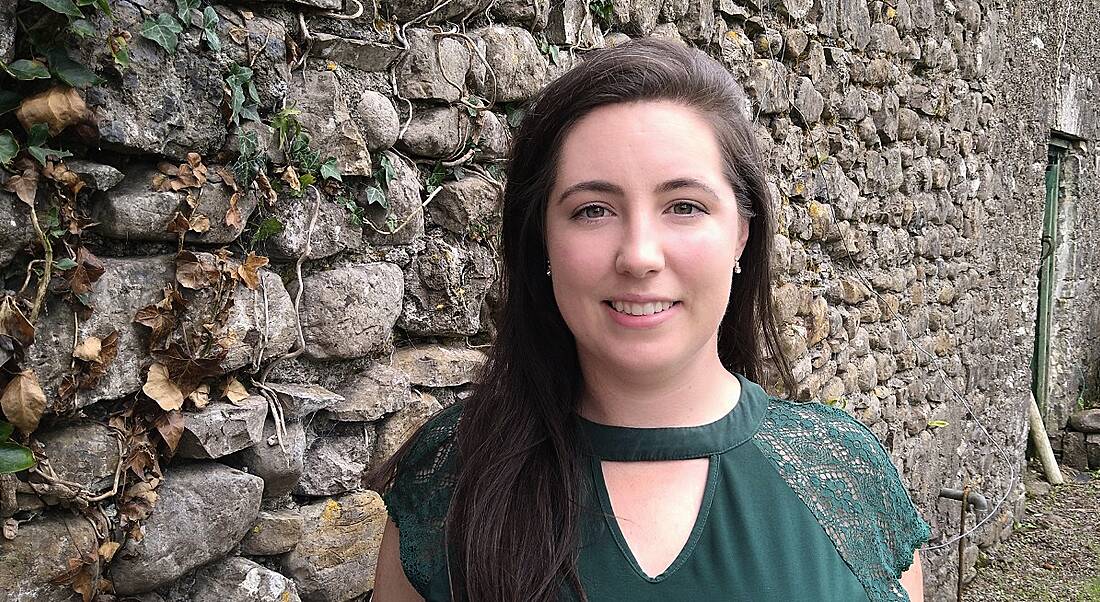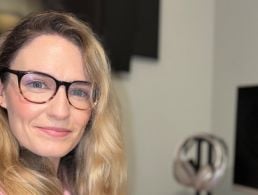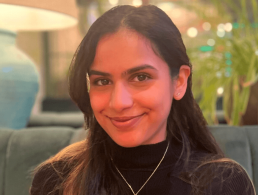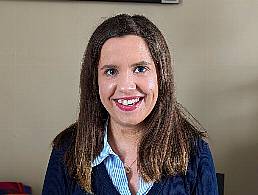Mary Seery of Fidelity Investments explains why her curious streak set her on a path to software development.
Having found her passion for computer science at university, Mary Seery now works as a principal software engineer at Fidelity Investments in Dublin. Here, she talks about learning to align her curiosity with business objectives and why she’s eager to become a mentor for other women in tech.
‘Watching how technology solves problems in established domains is fascinating’
– MARY SEERY
What drew you to a career in software development?
How I landed as a software engineer is a bit of a winding path. I’ve always been intent on keeping as many options open to myself as possible, so I chose science omnibus in University College Dublin.
There I picked up some computer science modules along with genetics and pharmacology. This gave me an excellent opportunity to compare disciplines. I ultimately chose computer science as I loved the feeling of building applications for users, something that is still true to this day.
What’s the best thing about working in the area?
I have an innate sense of curiosity and I love learning. Software development is constantly shifting and that’s what keeps me interested. Just when you think you have one thing mastered and learned, you realise there’s more than meets the eye.
Feeding that appetite outside of my role is the Engineering Community of Practice (COP) at Fidelity, where colleagues gather and learn about engineering topics that interest them. I sit on the committee, which gives me a bird’s-eye view of what is going on around the organisation in other teams and groups.
What’s the most exciting development you’ve witnessed in software development since you started working in it?
Most of my day-to-day software development is focused on the user interface, so seeing the progression of the tools and frameworks has been exciting. I spend a few hours every week reading about what’s coming next and love to see new innovations roll out.
From a wider technology perspective, I think watching how technology solves problems in established domains is fascinating. What will technology disrupt next?
What aspect of your job have you struggled to get to grips with?
As a software engineer, I just want to build things and spend all my time doing so. However, as I’ve progressed in my career, I’ve had to learn that we’re working to realise business strategy and that there are end users who use the product.
The impact of this realisation is that I spend a lot more of my development effort on ensuring quality solutions that I deliver, as well as ensuring my solutions scale with business needs. I spend less time on neat solutions that have no impact on the business and end users.
What has been the hardest thing you’ve had to face in your career and how did you overcome it?
This isn’t probably something unique to me, but imposter syndrome. I often think that what I know is not enough, and must actively remind myself that it is and that I’m good at my job and that I deserve to be where I am.
I know this is something women in STEM feel a bit more, which is why working in Fidelity has been so impactful on my career. Fidelity is a place that embraces diversity, and all day, every day I’m surrounded by amazing female leaders.
For example, my entire chain – all the way up to the head of technology in Ireland – is women. I work with an American team quite closely, led by a female vice-president. Seeing all these women in these top positions succeeding every day spurs me on to strive for more.
I feel so fortunate to work in an environment that embraces diversity not just on paper, but radically in practice. My own team is gender-balanced, which is a rarity in this industry.
If you had the power to change anything within the STEM sector, what would that be?
Linked to the above, I wish STEM careers were more welcoming to women. I think this is a shame, as there are many women who are put off by the stereotype of crazy working hours and who eventually leave STEM.
We have a hard time attracting women and when we do, retention is a big challenge. I think our flexible working options help alleviate this and more of that is required across the industry. It’s not a career path that traditionally embraces alternative working options, such as part-time or job sharing.
Which of your personality traits makes you best suited to your job?
I’m not sure if my colleagues would agree, but my persistence. Whether it be a technical problem or a process obstacle, I’ll generally keep at it until it’s solved, rarely taking ‘can’t do this’ as an acceptable answer.
Big organisations have their own unique set of challenges and my unwillingness to give up when hitting a dead end means that we’ve made some good strides in my team around technology and process.
Is there something in your personal life that has helped you in your job?
About three years ago, I took up golf as a new hobby – never too old to learn something new, right? It’s been good for me from a personal perspective to get out, stretch my legs and look at some greenery.
From a professional perspective, it helps me recharge and keeps me fresh. It also allows me to socialise with colleagues at sports and social golfing events and get to know colleagues from across the business through these events.
Fidelity has our own version of the Ryder Cup where the Galway office and the Dublin office meet in a ferocious clash! It’s all a bit of fun, but it keeps the competitive streak alive.
How do you make connections with others in the STEM community?
I much prefer face-to-face interactions, so I like to get out and about. I enjoy attending tech meetups, especially those focused around women in technology and, luckily for me, Dublin is a fantastic city for this. I attend one or two a year and it’s helped me connect with fellow women in tech, talk about some of the obstacles we face and brainstorm together.
From a technical perspective, I’ve found conferences a good place to connect with people about specific topics and to ‘talk shop’ with like-minded individuals. Through the Fidelity Engineering COP, I attended AngularConnect in London last year and found it eye opening to see what other companies are doing in this space.
Has mentorship or coaching been important in your career?
I haven’t had a formal mentor or coach up until recently in my career, but realised that since I’ve reached principal level, it is something I should do for myself. That’s not to say I got to where I am alone; there have been many people who have advised and challenged me along the way.
There have also been one or two people, allies or advocates, who have laid the path before me on the journey to where I am now. Without these people influencing in the background, I wouldn’t be where I am today.
I understand how important it is to have these allies in your work sphere, so I’ve become a mentor this year to another female technologist. I’m hoping by paying it forward, more can follow.
What advice would you give to someone thinking about a career in software development?
From my perspective, software development has changed from a solo job into a team sport and even through my own experience, I’ve seen how collaborative teams are much more effective and successful than a lot of independent operators. Given that, I would say be prepared to work with people and try to remember to focus on soft skills, too.




